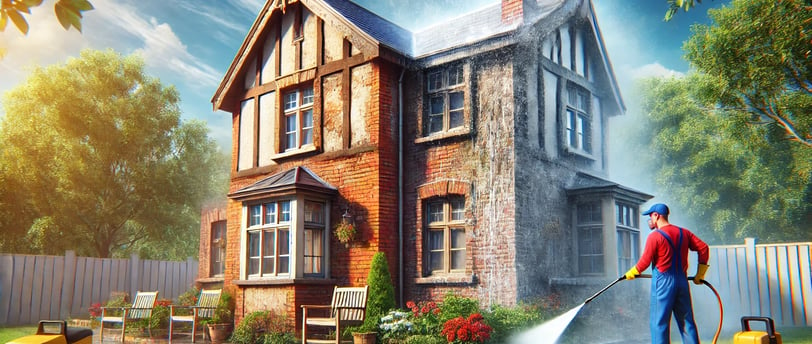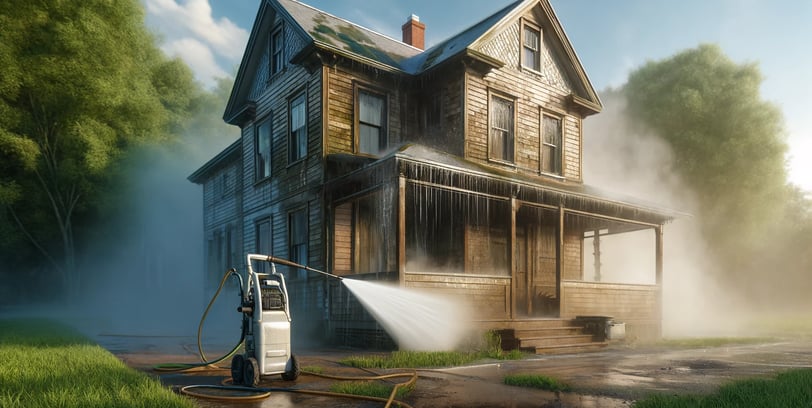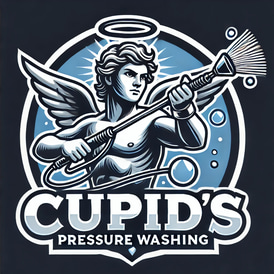Pressure Washing Tips for San Juan’s Old and New Homes
Whether you live in a brand-new town house or a rustic old home, a good pressure wash never hurts. With these services, you can make your house look as proud and clean as possible. Keep reading as we explain some of the benefits of these services.
PHILIPPINESHOME IMPROVEMENT TIPSPRESSURE WASHING SERVICESMETRO MANILA MAINTENANCE
12/4/20245 min read


Understanding the Basics of Pressure Washing
Pressure washing, also known as power washing, is a cleaning method that utilizes high-pressure water spray to remove dirt, grime, mold, and other unwanted substances from various surfaces. This technique is particularly effective for exterior cleaning tasks, as it can reach difficult areas and provide a thorough clean in a relatively short time. Understanding the fundamentals of pressure washing can significantly enhance the overall efficacy of this process.
There are two main types of pressure washing equipment: electric and gas pressure washers. Electric models are generally lighter and quieter, making them suitable for smaller tasks around the home, such as washing patios, decks, or vehicles. However, they typically offer lower power levels, which means they may not be effective for the more stubborn stains found on larger surfaces like driveways or building exteriors.
On the other hand, gas pressure washers provide higher pressure output and are therefore better suited for tougher jobs. These machines utilize a gasoline engine to generate power, making them mobile and effective for both residential and commercial cleaning. Gas pressure washers are commonly used for large surfaces, such as sidewalks, walls, and heavy-duty cleaning tasks.
Another critical aspect of pressure washing is understanding the pressure settings and types of nozzles available. Different surfaces require distinct pressure levels to avoid damage—using too high a pressure on softer surfaces like wood can lead to splintering or paint damage, while too low a pressure may not effectively remove dirt. Nozzles can further modify the spray pattern and pressure, making it crucial to select the right one for each task to ensure safety and efficiency.
Overall, by familiarizing oneself with pressure washing machinery and settings, homeowners can optimize their cleaning efforts, achieving a cleaner and more aesthetically pleasing exterior while safeguarding the integrity of their surfaces.
Considerations for Older Homes
When it comes to pressure washing older homes, several unique challenges must be taken into account to preserve the integrity of the building materials. Many older homes feature materials such as wood siding, stucco, and brick, which may have been subject to wear and tear over the years. Wood siding can be particularly fragile; it is crucial to assess its condition before proceeding with any pressure washing. Care should be taken to avoid causing splintering or dislodgement, which can compromise the aesthetic and structural integrity of the home.
Another common concern with older homes is the potential presence of lead paint. Homes constructed prior to 1978 are more likely to have lead-based paint, which poses health risks if disturbed. Prior to pressure washing, it is advisable to conduct a thorough inspection to identify any lead paint areas. If lead paint is found, the services of a certified professional should be sought to manage the situation safely. Thus, being aware of the paint's condition is essential for a successful pressure washing project.
In addition to these materials, issues such as rotting wood or crumbling mortar may also be present. These common problems in older homes necessitate a gentle approach when pressure washing. Instead of high-pressure settings, which can cause damage, a lower pressure setting is recommended. The use of appropriate detergents designed specifically for delicate surfaces can also help ensure that the cleaning process is effective without causing harm.
Before commencing any full-pressure washing application, it is advisable to carry out spot tests on inconspicuous areas to gauge the effects of the pressure and detergents used. Consulting with professionals who specialize in pressure washing older homes can further mitigate risks and ensure the preservation of the home’s historic character. Addressing these considerations is vital for achieving optimal results while protecting the property during the pressure washing process.
Pressure Washing Newer Properties: What to Know
Pressure washing serves as an essential maintenance tool for newer properties, which typically feature modern materials such as vinyl siding, composite decking, and advanced types of brick or stone. While these materials are usually more resilient than their older counterparts, they can still accumulate dirt, grime, mold, and mildew over time. Proper pressure washing not only cleans these surfaces but also enhances their curb appeal, ensuring that the property maintains its pristine condition.
When pressure washing newer homes, it is crucial to select the appropriate pressure settings and washing techniques suitable for the materials involved. For instance, vinyl siding can be cleaned effectively using a lighter pressure setting to avoid damage. A mixture of detergent and water can be applied first, allowing it to penetrate and break down tough stains. Following this, rinsing should be performed with a low-pressure spray, which will help dislodge any remaining debris while protecting the integrity of the siding.
Composite decking, often used for outdoor entertaining spaces, is also susceptible to mold and dirt buildup. It is advisable to use a fan-shaped nozzle and a pressure setting between 1,200 and 1,500 PSI, as excessive pressure can mar the surface. Incorporating environmentally friendly cleaning solutions can further protect these materials while providing a thorough clean.
Routine maintenance practices are vital in extending the life of newer materials. Regular inspections for signs of mold and mildew, coupled with periodic pressure washing, can preempt more severe damage. Property owners should aim to pressure wash surfaces at least once or twice a year, focusing on areas that receive the most exposure to weather elements. By maintaining a proactive cleaning schedule, homeowners can preserve their investment in newer properties, ensuring that they look great for years to come.
Choosing the Right Equipment and Pros
When considering pressure washing for your home, it is crucial to select the appropriate equipment suitable for both older and newer properties. The type of pressure washer you choose can significantly impact the effectiveness and safety of the washing process. For newer homes, electric pressure washers, which typically deliver lower pressure, may be sufficient for regular maintenance. They are quieter and often easier to maneuver, making them ideal for smaller surfaces like patios or decks.
On the other hand, older homes, especially those with more durable surfaces such as brick or concrete, may benefit from gas-powered pressure washers. These models generate higher pressure and are more effective in removing tough stains, mildew, and grime accumulated over the years. However, the increased pressure can also pose a risk of damage to delicate surfaces, so careful consideration is necessary.
Additionally, homeowners face the decision of renting equipment or hiring professionals. Renting can be a cost-effective solution for those who are experienced and confident in using pressure washing equipment. It allows homeowners to save money, especially if the job is expected to require several hours and access to professional-grade machinery. However, the learning curve associated with equipment operation and safety should not be underestimated.
If the task seems daunting or the surface requires specialized care, enlisting the help of professional pressure washing services in San Juan may be the best approach. Reliable contractors not only have access to advanced equipment but also possess the expertise to ensure effective cleaning without damaging your property. When searching for a reputable service, it is beneficial to check customer reviews, ask for references, and verify that the contractor is licensed and insured. Essential questions to consider include inquiring about their cleaning techniques, the materials they use, and whether they offer a satisfaction guarantee. By conducting thorough research, homeowners can ensure they receive high-quality pressure washing services tailored to their specific needs.


